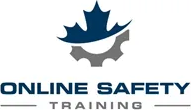Hours of Service Training in Canada

The Benefits of Hours of Service Training in Canada
Canada’s transportation industry is the backbone of the economy, ensuring the smooth movement of goods and people across vast distances. In this sector, commercial drivers play a crucial role, responsible for transporting goods safely and efficiently. However, managing hours of service (HOS) is a critical aspect of the job to prevent fatigue-related accidents and ensure compliance with regulations. Hours of service training in Canada is essential to educate drivers on HOS rules, promote road safety, and uphold the integrity of the transportation industry. In this article, we will explore the numerous benefits of HOS training and how it contributes to creating safer roads and a more efficient transportation sector in Canada.
- Reduction in Fatigue-Related Accidents
The most significant benefit of hours of service training is the reduction in fatigue-related accidents. Fatigue is a leading cause of accidents in the transportation industry, as tired drivers have slower reaction times, impaired judgment, and decreased concentration. HOS training educates drivers about the importance of proper rest and adherence to regulations, reducing the likelihood of accidents caused by fatigue.
- Compliance with Canadian Regulations
Canada has stringent regulations governing HOS for commercial drivers. Failure to comply with these regulations can result in legal consequences, fines, and disruptions to business operations. HOS training programs are designed to ensure that drivers fully understand and adhere to Canadian HOS rules, helping organizations remain compliant with safety requirements.
- Improved Time Management
HOS training helps drivers develop effective time management skills. Commercial drivers often face tight schedules and deadlines, making it essential to plan their routes and rest breaks efficiently. Training programs teach drivers how to create schedules that allow them to meet their delivery commitments while staying within the legal limits of HOS regulations.
- Enhanced Road Safety
HOS training contributes to overall road safety by reducing the number of fatigued drivers on the road. Well-rested drivers are more alert, responsive, and better equipped to handle unexpected situations. By promoting adherence to HOS regulations, training programs enhance road safety for all road users.
- Prevention of Violations
Violations of HOS regulations can result in fines, penalties, and damage to a driver’s record. HOS training educates drivers about the specific rules and regulations, helping them avoid violations that could jeopardize their careers and the reputation of their organizations.
- Reduced Insurance Costs
Commercial vehicle insurance premiums can be costly, and a history of accidents or violations can lead to increased costs. Hours of service training demonstrates a commitment to safety and responsible driving practices, which can lead to lower insurance premiums over time, providing a financial incentive to prioritize HOS compliance and safety.
- Enhanced Driver Well-being
HOS training programs emphasize the importance of driver well-being. They educate drivers on the significance of proper rest, nutrition, and exercise to maintain physical and mental health. A healthy driver is more alert and less prone to fatigue, contributing to safer driving practices.
- Customized Training
HOS training can be customized to address specific industry needs and challenges. Different sectors of the transportation industry may have unique demands, and training programs can be tailored to account for specific factors such as long-haul versus local routes, different types of cargo, and regional differences in regulations.
- Reduced Risk of Legal Action
Compliance with HOS regulations is not only a matter of road safety but also a legal requirement. Violations can lead to legal actions against both drivers and their organizations. Proper HOS training reduces the risk of legal disputes, helping drivers and organizations stay on the right side of the law.
- Cultivation of a Safety Culture
Implementing HOS training fosters a culture of safety within the organization. When employers invest in the education and training of their drivers, it sends a clear message that safety is a top priority. Drivers are more inclined to adopt safe practices, adhere to HOS regulations, and encourage their colleagues to do the same, creating a safer work environment and promoting safety as a shared value.
Hours of service training is an essential component of road safety and regulatory compliance in Canada’s transportation industry. By reducing the risk of fatigue-related accidents, ensuring compliance with regulations, promoting time management skills, and enhancing overall road safety, it significantly contributes to creating safer roads and a more efficient transportation sector. Moreover, it equips commercial drivers with the knowledge and skills needed to prioritize proper rest and responsible driving practices.
Investing in hours of service training is not merely a legal requirement; it is a crucial step in safeguarding the well-being of drivers, protecting the reputation of organizations, and ensuring the integrity of the transportation industry. It is an investment in both safety and efficiency, ultimately benefiting the organization as a whole. Drivers who prioritize HOS compliance through proper training not only protect themselves but also contribute to safer roads and the overall success of Canada’s transportation sector.
Click here for an online Hours of Service training course.
Click here for Government of Canada information.
